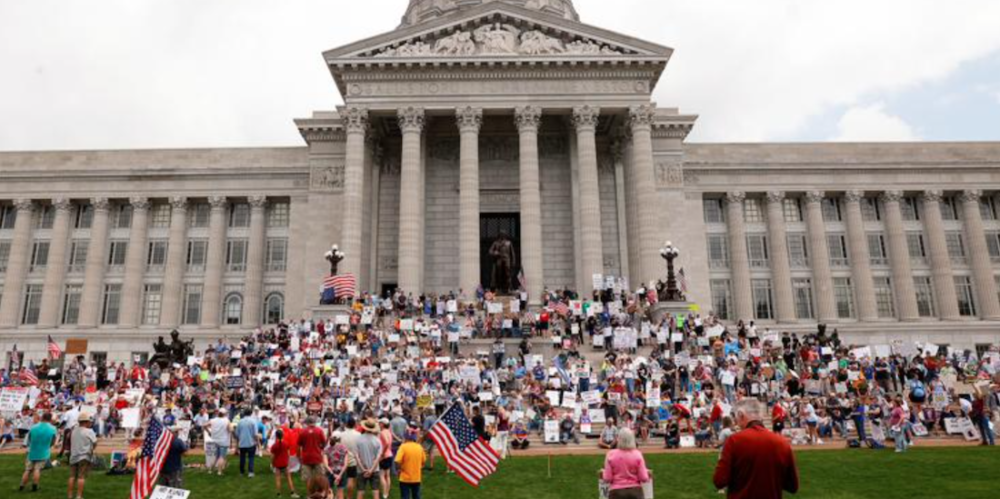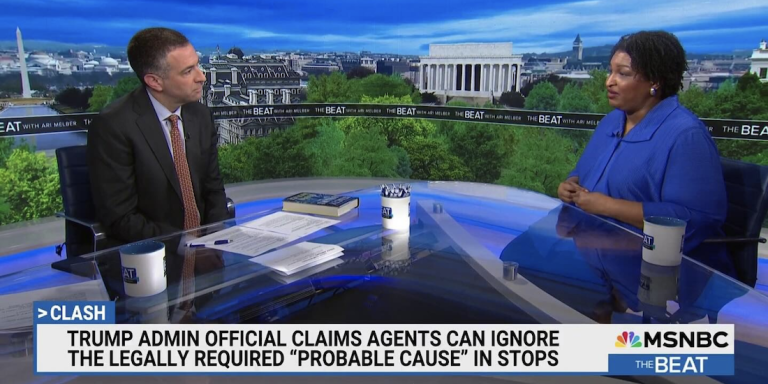
Abrams Urges Protests Against Autocratic Behavior in U.S. Politics
New York, N.Y. — In a powerful MSNBC interview, Stacey Abrams called for protests against President Donald Trump’s alleged illegal actions, emphasizing the critical role of public dissent in safeguarding U.S. democracy from autocratic threats.
On July 14, 2025, Georgia Democratic leader Stacey Abrams appeared on MSNBC’s “The Beat” to deliver a compelling case for public protest against what she described as President Donald Trump’s “illegal behavior.”
Her remarks come amid heightened political tensions, as concerns grow over actions that critics argue undermine democratic norms. Abrams, a prominent advocate for voting rights and democratic reform, framed protest as an essential tool to counter autocratic tendencies, drawing from her recent discussions on the “ten steps to autocracy” that threaten U.S. democracy.
The Threat of Autocracy
Abrams warned that America is not immune to the erosion of democratic principles seen in other nations. “We seem to think that we’re immune to what has happened to other democracies that have fallen into the hands of autocrats,” she said.
She outlined how autocracies thrive by instilling fear, silencing dissent, and discouraging citizens from speaking out due to potential consequences. For Abrams, protest serves as a direct counter to this strategy, empowering individuals to challenge authority and assert their rights.
Her comments reflect growing concerns among political analysts and activists about Trump’s actions, which many describe as authoritarian. From executive orders bypassing Congress to reported pressure on federal agencies, critics argue that these moves concentrate power and weaken checks and balances.
Abrams emphasized that silence in the face of such actions enables autocracy to take root, urging citizens to recognize their responsibility to act.
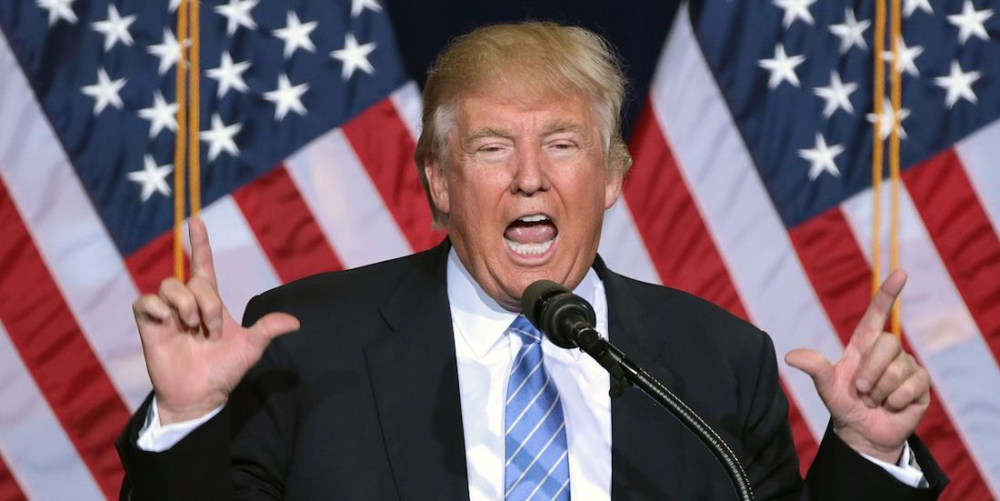
Protest as a Democratic Tool
“Protest is the counter-narrative,” Abrams declared, underscoring its role in exposing and resisting autocratic behavior. She argued that protests signal to those in power that their actions are being scrutinized and will not go unchallenged.
“It says I see what you’re doing. I believe I have not only the right, but the responsibility to point out that what you are doing is wrong,” she said. This call to action resonates with civil rights movements historically rooted in Georgia, where Abrams has been a leading voice.
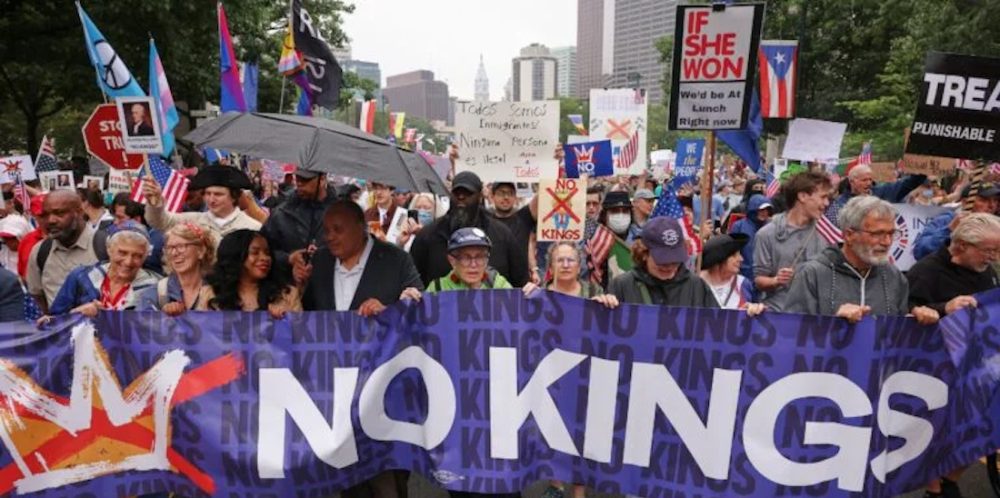
She acknowledged the risks involved, noting that authorities may respond with force, including “armed agents and Marines.” Yet, she stressed that the act of protest remains vital, even when it feels inadequate.
“There is nothing that hits the ear of an autocrat sharper than the sound of people saying, we could see you and we refuse to submit,” Abrams said. Her words echo the legacy of nonviolent resistance championed by figures like Martin Luther King Jr., who used public demonstrations to challenge systemic injustice.
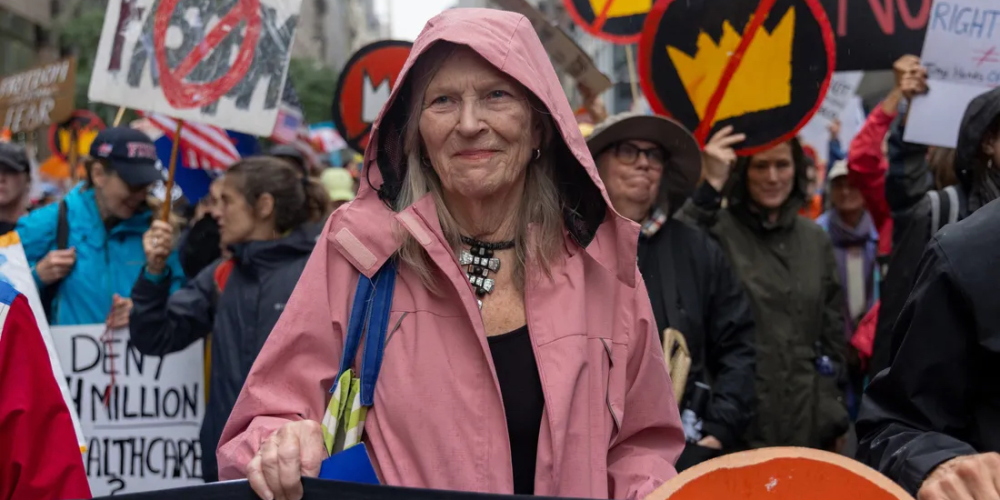
The Cost of Silence
Abrams highlighted the personal and collective costs of remaining silent. She warned that autocratic regimes often target specific groups to instill fear in the broader population.
“Part of our responsibility is to recognize that no matter who they
are coming after, first they’re coming after you next,” Abrams said.
This perspective draws parallels to historical warnings about the gradual erosion of freedoms, where initial attacks on marginalized groups pave the way for broader oppression.
Her remarks come at a time when protest movements across the U.S. have gained momentum. From Washington, D.C. to Atlanta, citizens have taken to the streets to oppose policies perceived as undermining democratic institutions.
Abrams’ advocacy aligns with these efforts, reinforcing the idea that collective action is a cornerstone of democracy. She urged Americans to overcome fear and embrace their role in holding leaders accountable.

A Call to Sustain Momentum
While acknowledging the challenges of sustaining protest movements, Abrams emphasized their long-term impact. She cited examples of successful grassroots efforts in Georgia, where her work with organizations like Fair Fight has expanded voter access and challenged electoral suppression.
These efforts demonstrate the power of sustained civic engagement, even in the face of resistance from powerful institutions.
Abrams also addressed the emotional toll of protest, noting that it can feel “inadequate to the task” when confronting entrenched power. However, she argued that every act of dissent weakens the grip of autocracy.
By drawing attention to Trump’s alleged illegal actions, Abrams seeks to galvanize a broad coalition of activists, voters, and community leaders to protect U.S. democracy.
